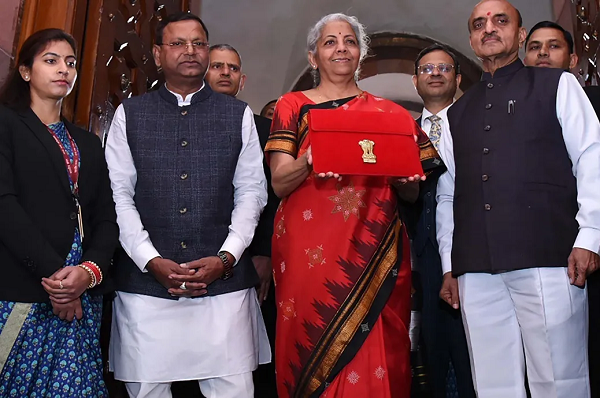
- 1
- 2
- 3
- 4
- 5
- 6
- 7
- 8
- 9
- 10
IAF World Fashion Convention 2025 set for Yogyakarta, Indonesia
The 40th IAF World Fashion Convention will take place on October 24-25, 2025, in Yogyakarta, Indonesia, bringing together top leaders... Read more
Jeanologia showcases cutting-edge textile tech at Egypt Stitch & Tex
Jeanologia, a global leader in textile technology, showcased its latest sustainable solutions at the Egypt Stitch & Tex fair in... Read more
Kantar BrandZ fashion report underscores luxury's digital dominance, rise of res…
The fashion and apparel landscape going through a transformation, says the latest Kantar BrandZ ‘Most Valuable Global Brands’ report. Luxury's... Read more
Gen Z's ‘No Buy 2025’: A retail reckoning boosted by austerity and authenticity
The hum of consumer-driven economy is faltering, and the reverberations are hitting luxury retail with a force that suggests a... Read more
Texworld Apparel Sourcing Paris sees strong growth
The 56th edition of Texworld Apparel Sourcing Paris concluded on a high note, attracting more than 8,500 visitors and strengthening... Read more
Source Fashion 2025 sees record growth with 32% visitor increase
Source Fashion, Europe's leading responsible sourcing show, wrapped up another successful edition with a remarkable 32 per cent increase in... Read more
Indian textile, apparel exports show strong growth in January 2025
According to a recent analysis by the Confederation of Indian Textile Industry (CITI), India's textile and apparel exports experienced robust... Read more
Circular Business Models: A double-edged sword for sustainable consumption
The rise of circular economy has brought in a wave of innovative business models designed to minimize waste and maximize... Read more
The plastic crisis and the biodegradable polyester revolution
The world is drowning in plastic. Non-biodegradable polymers, primarily derived from petroleum, clog landfills, pollute oceans, and disrupt ecosystems. The... Read more
Premiere Vision Paris drives fashion industry transformation
Premiere Vision Paris, held from February 11 to 13, 2025, brought together key players in the creative and responsible fashion... Read more












